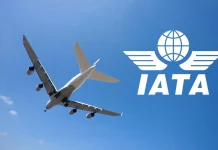BANGKOK, 30 July 2024: Thai Airways International issued a warning on its social media accounts last week, saying fare deals targeting senior travellers posted on Facebook by “a professional” are fake.
The airline ran an image of the promotion denouncing it as “fake news”. Although it did not elaborate on the definition of “professional,” the inference was that a scammer was pretending to be a travel agent with the inside track on a TG fare discount for seniors (over 60 years old). The promotion’s small print pointed to a fake address airtravel6.live.

The THAI social media team describes the hoax offer: “This is fake news from a professional offering cheap, affordable flights for seniors. It is spreading on social media in large numbers.”
THAI’s communications team advises travellers to check all information carefully.
“If you see such news, do not be deceived … warn friends around you. For the safety of your property and information, do not click on any links, add to Line account, transfer money, or agree to any transaction.”
The airline advises travellers to check out the fares and offers on its website directly or contact the airline’s call centre. So, what’s the bottom-line advice? Don’t trust social media travel offers, and don’t click on any social media fare deals unless you are absolutely sure the site you are about visit is safe.
We checked the senior fares offered by THAI and opened the link below to see what the airline offers us. Visit https://www.thaiairways.com/en_TH/book/offers/special_offers/senior-fare.page.
Before you can check the senior offers, which are limited to travel in Thailand, you have to show that you are 60 years or older. The offers should pop up first. Instead, you have first to insert travel dates and choose a destination. Then it tells you to show proof of age (membership card number?). It’s not a very user-friendly website to browse. It needs to improve if it wants seniors to spend time browsing its fare offers online, and there should be offers for regional travel not just domestic destinations.
Scammers target the airline industry
Meanwhile, Andrea Feldman of BlueVoyant, an expert combating cyber fraud in the aviation industry, posted the following observations last week saying: “Fraudulent cyber attacks targeting the airline industry are a common issue largely seen on the underground, such as the deep and dark web.”
According to RSA Security, airlines are the industry most affected by online fraud, accounting for 46% of fraudulent transactions.
“As a result, airlines face huge financial costs, with losses due to fraud estimated at 1.2% of global airline revenue.
“Over the past few years, BlueVoyant has observed a significant spike in threat actors targeting the aviation industry worldwide due to airlines’ increasing reliance on online booking and reservation platforms.
“These online tools make it more convenient for customers to purchase airline tickets and have become an industry standard, but they have also made it easier for fraudsters to exploit vulnerabilities in online systems. The significant disruption and increase in remote work caused by the Covid-19 pandemic have also increased fraud in recent years.”
Analysing Fraud in the Underground Market
“Posts offering flight tickets or compromised accounts with frequent flyer miles or reward points at advantageous prices are very common in underground forums, chat platform groups, and even on social media.”
Discounted Tickets
“The method that threat actors commonly use to sell flight tickets at reduced prices typically involves using compromised credit cards to purchase the tickets. These posts are frequently seen in the underground market targeting airlines worldwide.”
(SOURCE: THAI news and additional observations from BlueVoyant)






